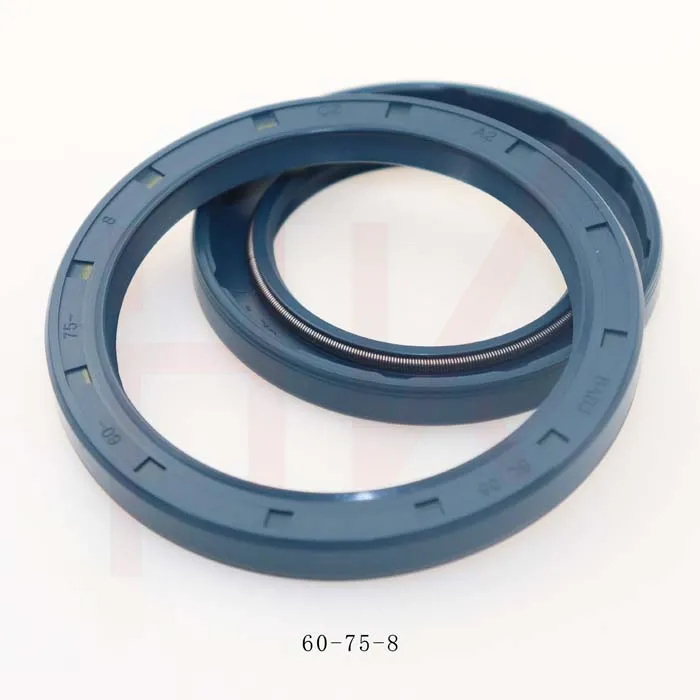Nov . 11, 2024 13:48 Back to list
industrial oil seals
Industrial Oil Seals A Comprehensive Overview
Industrial oil seals are vital components used in various mechanical systems to prevent the leakage of lubricants and protect against contaminants. In diverse applications ranging from automotive to heavy machinery, these seals ensure effective operation by maintaining the integrity of systems that rely on fluids for lubrication and operation. Understanding the importance, types, materials, and applications of industrial oil seals can aid in their effective selection and maintenance.
Importance of Oil Seals
Oil seals are designed to perform several critical functions. Primarily, they prevent the escape of lubricants from machinery, ensuring that vital parts remain properly lubricated, which is crucial for reducing wear and tear. This preservation of lubricants not only enhances the longevity of the machinery but also improves operational efficiency, reducing energy costs and downtime associated with unscheduled maintenance.
In addition to retaining lubricants, industrial oil seals also protect sensitive components from the ingress of dirt, dust, and moisture. Contaminants can lead to premature failure of machinery and systems, as they can cause abrasive damage and even corrosion. Therefore, oil seals play a dual role in safeguarding both the lubricant and the machinery itself.
Types of Oil Seals
There are various types of oil seals, each designed for specific applications and conditions
. The most common types include1. Rotary Oil Seals These are the most common type used in rotating machinery, where they help seal shafts against leakage. They are often made with elastomeric materials and feature a flexible lip that creates a tight seal against the moving surface.
2. Mechanical Seals Often used in pumps, these seals involve two rotating surfaces that form a barrier to fluid leakage. They are typically more complex than rotary seals and are used in situations where high pressures are involved.
3. Static Seals These seals are used between stationary parts and are designed to prevent leakage without motion. They are commonly found in flanged joints and connections.
Materials Used in Oil Seals
industrial oil seals

The effectiveness of oil seals is largely determined by the materials used in their construction. Common materials include
- Nitrile Rubber (NBR) Known for its excellent oil and temperature resistance, NBR is a widely used material in oil seals for a range of applications.
- Fluorocarbon (FKM) This material has superior resistance to high temperatures and aggressive chemicals, making it suitable for more demanding environments.
- Polyurethane Known for its resilience and durability, polyurethane seals provide excellent abrasion resistance and are used in both static and dynamic applications.
- PTFE Polytetrafluoroethylene (PTFE) seals are renowned for their low friction properties and chemical resistance, making them ideal for installations that require minimal wear.
Applications of Oil Seals
Industrial oil seals find applications across a multitude of industries. In the automotive sector, they are essential for engines, transmissions, and differentials. In manufacturing, oil seals are used in machinery such as pumps, compressors, and hydraulic systems.
The mining and construction industries also rely heavily on oil seals in equipment such as excavators and bulldozers, where dust and dirt are prevalent. In all these applications, choosing the right oil seal is critical to ensure operational reliability and extend the equipment's lifespan.
Conclusion
In summary, industrial oil seals are indispensable components that play a crucial role in various mechanical systems. By effectively sealing lubricants and preventing contamination, they contribute significantly to the reliability and efficiency of operations across multiple industries. Understanding their types, materials, and applications allows engineers and maintenance personnel to select the appropriate seals for their specific needs, ensuring optimal performance and longevity of machinery. Proper maintenance and timely replacement of oil seals can ultimately lead to significant cost savings and enhanced productivity in industrial operations.
-
TCN Oil Seal Metal Ring Reinforcement for Heavy Machinery
NewsJul.25,2025
-
Rotary Lip Seal Spring-Loaded Design for High-Speed Applications
NewsJul.25,2025
-
Hydraulic Cylinder Seals Polyurethane Material for High-Impact Jobs
NewsJul.25,2025
-
High Pressure Oil Seal Polyurethane Coating Wear Resistance
NewsJul.25,2025
-
Dust Proof Seal Double Lip Design for Construction Equipment
NewsJul.25,2025
-
Hub Seal Polyurethane Wear Resistance in Agricultural Vehicles
NewsJul.25,2025
-
The Trans-formative Journey of Wheel Hub Oil Seals
NewsJun.06,2025
Products categories
















